Who Is Liable for Railroad Accidents and Injuries?
Working on the railroad has always involved inherent risks. From traversing uneven terrain and exposure to extreme weather to operating heavy machinery and managing high-voltage equipment, the daily responsibilities of railroad workers abound with hazards.
In Alabama, the legal landscape surrounding railroad accidents and injuries brings another layer of complexity for injured workers. Understanding the regulatory environment and proving liability can significantly impact whether an injured railroad worker receives just compensation.
Understanding Railroad Worker Injuries
From conductors and engineers to track repair workers and signal maintainers, railroaders face immense risks in carrying out their essential duties. These dangers manifest in both immediate traumatic injuries from accidents as well as long-term repetitive stress injuries and occupational illnesses.
Traumatic Injuries
Accidents resulting from collisions, derailments, or equipment malfunctions often cause severe crush injuries, burns, spinal damage, and brain trauma. Even a momentary lapse in safety protocols can have devastating consequences for workers.
Repetitive Stress Injuries
The physically demanding nature of railroad work frequently leads to overuse issues such as back injuries, carpal tunnel syndrome, and joint/muscle damage in the knees or shoulders requiring surgery. These develop over weeks, months, or years of repetitive motions.
Occupational Illnesses
In addition to traumatic and repetitive injuries, railroad workers face elevated risks of serious illnesses. Exposure to loud noises can cause permanent hearing loss over time. Handling hazardous equipment and materials also increases the chance of respiratory issues or conditions like asbestosis.
Legal Framework Governing Railroad Accidents
For railroaders injured on the job, seeking compensation involves navigating a complex legal framework defined by federal legislation along with state workplace safety regulations.
Federal Employers Liability Act (FELA)
Enacted in 1908, FELA allows railroad workers to file negligence claims against their employers for workplace injuries. Unlike regular workers’ compensation laws, FELA has no caps on damages.
OSHA and Other Regulations
In addition to FELA negligence claims, government bodies like the Occupational Safety and Health Administration set safety requirements for railroad working conditions, non-compliance with which may bolster legal cases.
FELA vs. Workers’ Comp
While workers’ comp provides no-fault benefits for general workplace injuries, FELA requires railroaders to prove employer negligence. In exchange, FELA allows the possibility of higher payouts.
Determining Liability in Railroad Accidents
When railyard accidents, equipment failures, or hazardous exposures cause injuries, determining liability forms the crux of building a strong FELA claim.
The Concept of Negligence
Under FELA, railroad workers must prove some degree of employer negligence responsible for their injuries, whether through lax safety policies, failure to maintain equipment, excessive work hours, or other preventable causes.
Employer Responsibilities
Railroads have a legal duty to provide their workers with safe tools/machinery with proper protocols and training for operating them. They must also furnish reasonably safe work premises.
Third-Party Liability
While employers bear principal responsibility, equipment manufacturers, contractors, or other parties may also be liable if their negligence or defective products contributed to a railroad worker’s injuries.
Common Causes of Railroad Accidents
In building FELA injury cases, identifying the root cause of the accident forms a key step, especially where negligence or preventative actions could have changed the outcome.
Human Errors
Mistakes by fatigued operators, improperly trained crews, or supervisors pushing excessive hours often play a major role in railroad mishaps. Such oversights clearly denote negligence.
Equipment Failures
Malfunctioning machinery, outdated technology lacking modern safeguards, and missed inspections/maintenance on equipment frequently are contributing factors in workplace accidents.
Infrastructure Issues
Improperly maintained tracks and ancillary infrastructure (switches, signals, etc.) pose significant risks to safe railroad operations and may point to negligence.
Third-Party Impacts
While less common, actions of manufacturers, contractors, motorists at crossings, or other external parties should also be examined in accident investigations.
Proving Employer Negligence under FELA
Succeeding with FELA injury claims requires proving negligence to qualify for damages. Strategic presentation of evidence can help overcome common defenses.
The Vital Importance of Evidence
Documentation, witness testimony, equipment records, medical reports, and expert input comprise crucial evidence for demonstrating negligence in a railroad accident.
Expert Witnesses
Veteran railroaders, accident reconstruction specialists, physicians, and vocational experts provide pivotal third-party validation regarding negligence and damages.
Overcoming Typical Defenses
Railroads often allege inevitable accidents, preexisting conditions, or employee misconduct rather than accepting blame. Skilled attorneys can undermine these defenses.
Comparative Negligence and Its Effect on Railroad Injury Claims
One complex area accompanying many FELA cases involves the principle of comparative negligence and its influence on potential compensation.
What is Comparative Negligence?
Under FELA, if an employee’s actions partially contributed to causing their own injuries, damages payable get reduced by the percentage of the worker’s fault.
Impact on Claims
Say an employee suffered $100,000 in damages but exhibited 10% comparative negligence; their compensation would equal $90,000 – their award reduced by their degree of fault.
Strategies to Overcome
By thoroughly documenting negligence exclusively attributable to the employer, skilled attorneys can often defeat assertions of comparative negligence and recover full deserved damages.
Seeking Compensation under FELA
For qualifying railroad workers injured by their employer’s negligence, FELA allows considerable compensation – but also involves strict filing deadlines.
Kinds of Recoverable Damages
Successful FELA cases can provide recompense for a breadth of tangible and intangible losses including medical bills, lost income, diminished working capacity, pain/suffering, and in cases of egregious negligence, punitive damages.
The Claims Process
Injured rail workers file suits against negligent employers to receive compensation typically through settlement discussions or jury awards if necessary.
Strict Time Limits
Due to the FELA statute of limitations, workers must file claims within three years of their accident or two years post-diagnosis of an illness to qualify for compensation.
The Role of Legal Representation
For injured railroaders, leveraging experienced legal advocacy offers the best opportunity for just recovery after a serious workplace accident.
Value of Specialized Counsel
FELA’s complexity often necessitates the engagement of a specialized railroad injury firm. Their familiarity with these cases facilitates building a compelling argument for damages.
Impacts Claim Outcomes
Statistically, retaining proficient FELA counsel significantly increases compensation through their litigation skills, investigative resources, understanding of railroad hazards, and vocational experts.
Collaboration Yields Results
By putting in long hours and working closely with clients to capture vital details about an accident, skilled railroad injury lawyers construct arguments to prove negligence and maximize recoveries.
Contact our Reputable Alabama Railroad Injury Attorneys
The risks inherent in keeping railroads operating take an immense toll on workers injured through little fault of their own. Fortunately, FELA provides the means for those hurt by negligent working conditions or inadequate safety regimes to receive rightful compensation. If you or a loved one labored in service to the railroads only to get injured by substandard safety environments, contact Burge & Burge at 205-947-2962 or message us online to preserve your rights and explore your pathway toward fair recovery. Our attorneys will evaluate your situation comprehensively, advise on viable options, and support you through every step of the process from investigation to resolution.

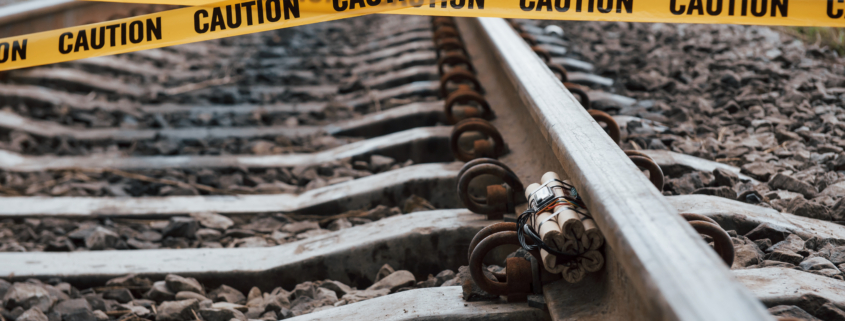
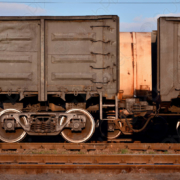
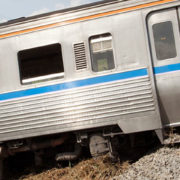
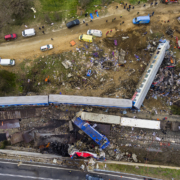

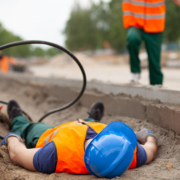

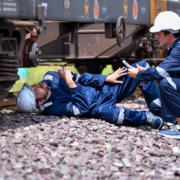

Leave a Reply
Want to join the discussion?Feel free to contribute!